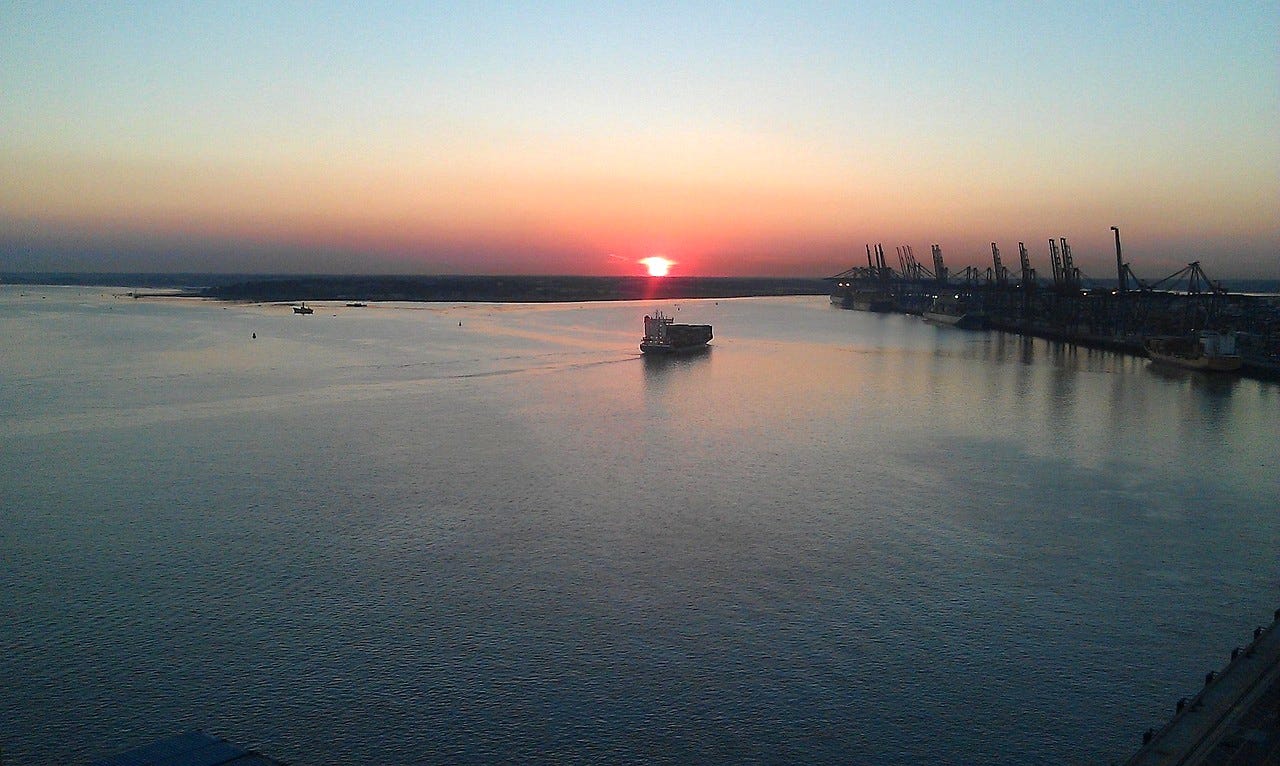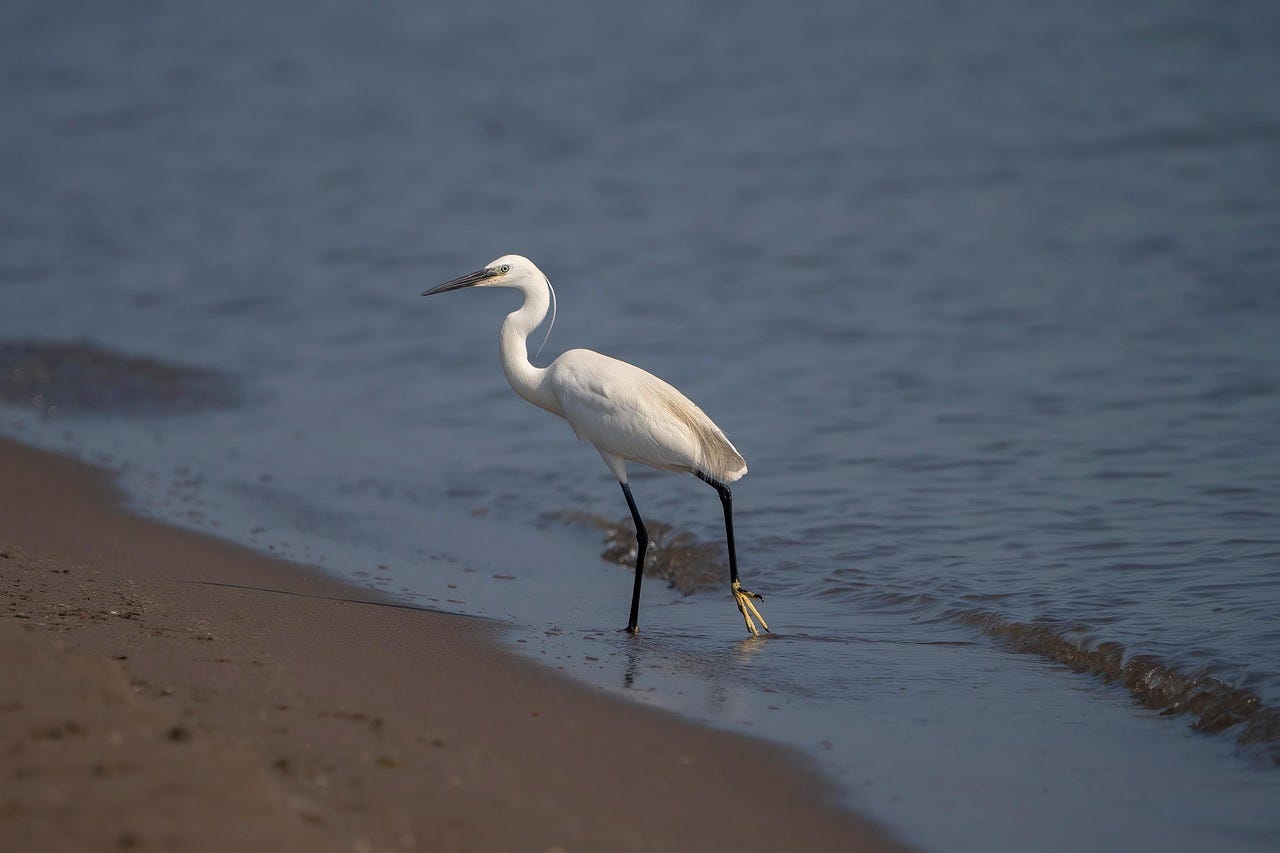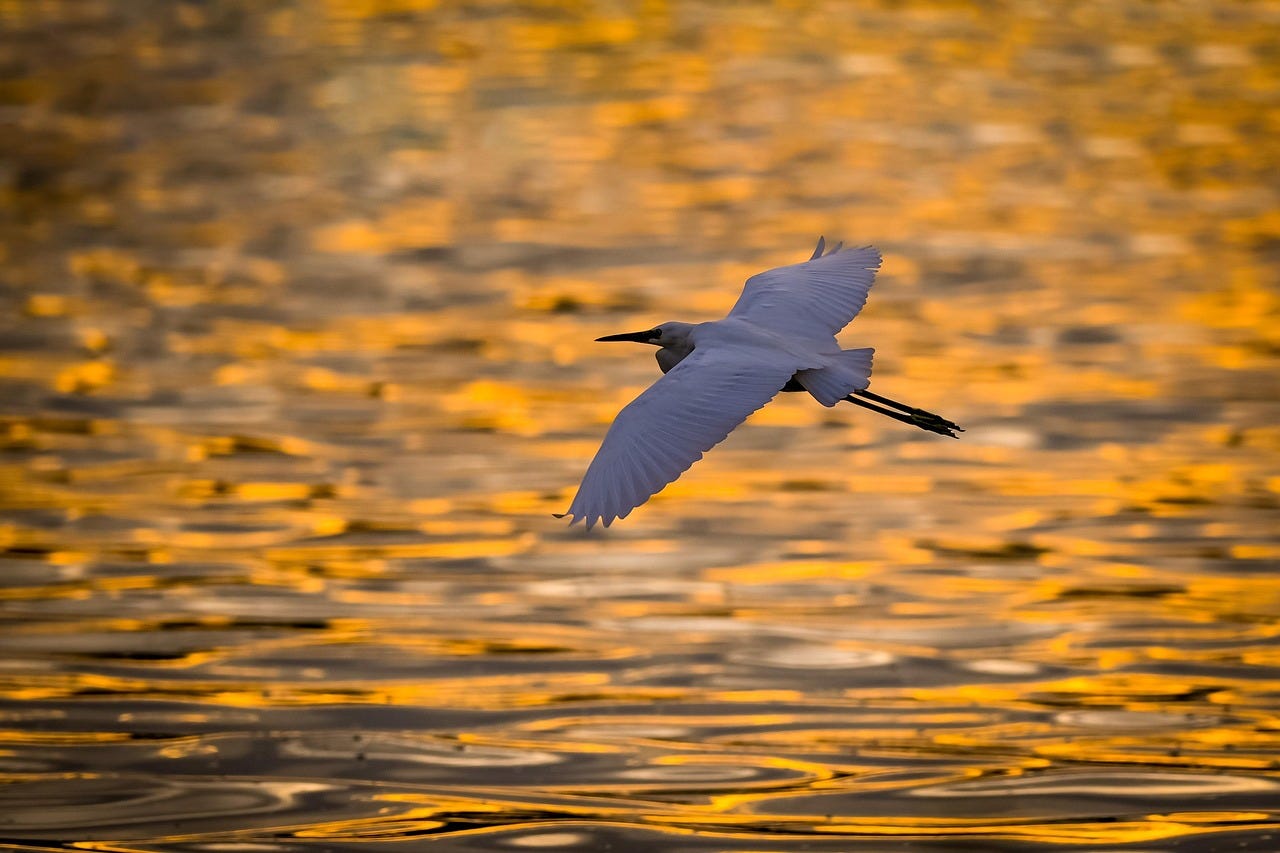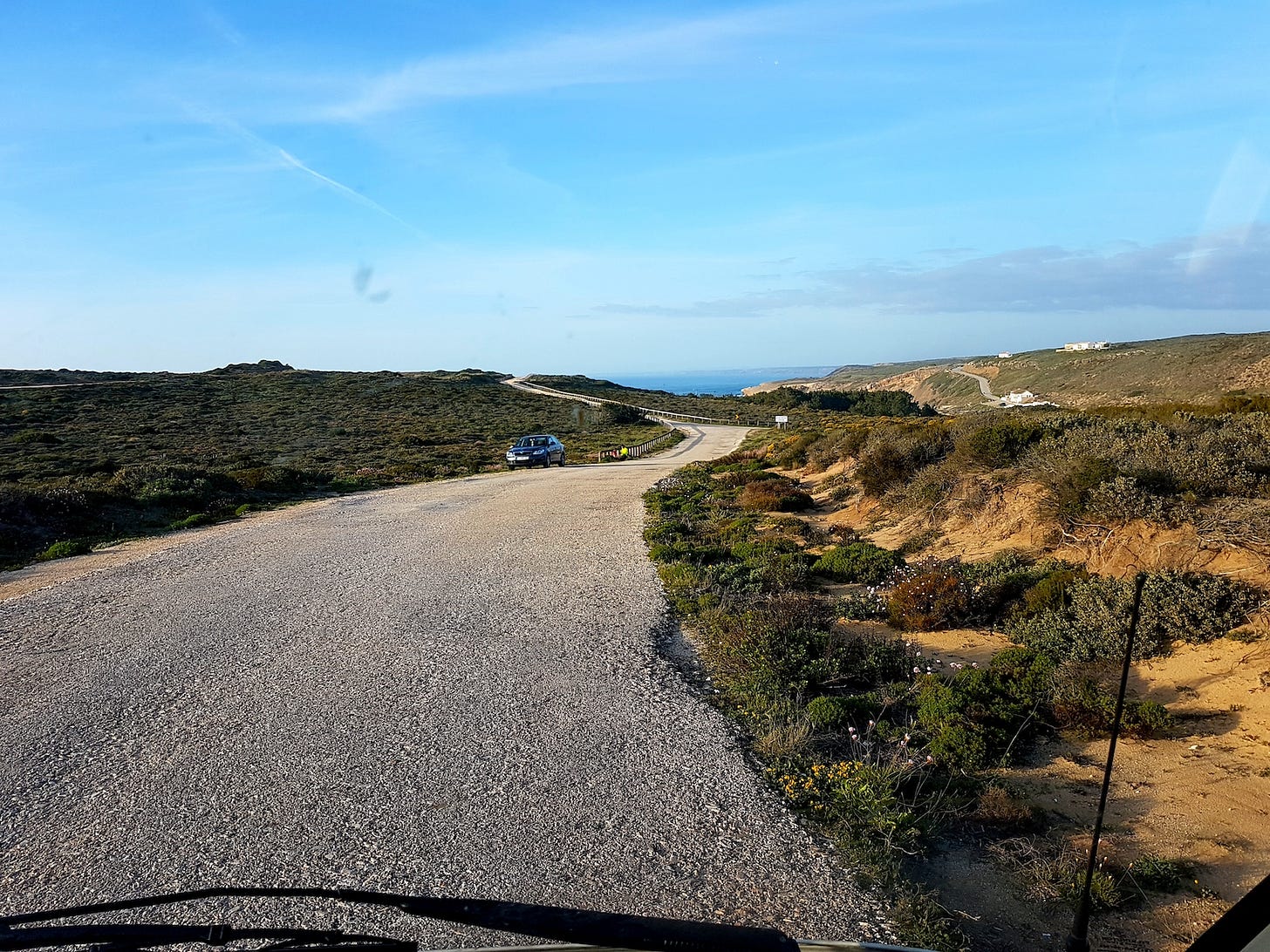Masters of the In Between.
I’m staring out over The English Channel as another spring day draws to a coppery end. Dapper black and white oystercatchers squawk noisily overhead, while little redshanks probe the stodgy wet mud. I’m walking an intersection of wetland that bridges river and sea—the brackish water, reed beds, and coastal mud flats a popular pit stop for migrating birds from Africa and Europe.
In the near distance I spy the gantries and davits of Felixstowe port. In little more than a week I’ll be sailing past those machine monsters, their iron necks bent over the water like camels at an oasis. Once I cast off from this shore, I’ll cross the North Sea for the Netherlands. It will be the beginning of my next mud and road adventure, a drive that will take me over 2500 kilometres from the north-westerly corner of Europe to her south-easterly toe in Bulgaria. The tide of anticipation rises in my veins. I just can’t wait.

Tension
How strange this all is though! A curious tension exists in my life now. As I wander the coastal paths of Suffolk gazing at hordes of grazing deer and gleaming estuaries teeming with avian life, I feel a bond strengthening between my soul and this more rural swathe of East Anglia. The silvery waterways, wide open skies, and plethora of ancient architecture have beguiled me in a way I hadn’t anticipated. Nonetheless, the road always shimmers before me, finger crooked, beckoning.
“Come hither, my dear,” it says. “I hold new landscapes to open your eyes with. New people for you to meet. New ways of living on this planet that you haven’t yet seen. And a million assumptions to incinerate.”
So here I am, between two shores. Always standing at the edge of one, with half an eye on the other.
The Trick
Wherever we are in this life and this world there are going to be pros and cons. In the months I reside in Suffolk, I stay in a flat by the river—a beautiful thousand-year-old building graced by ancient beams and plenty of character. It’s a landing pad that is making me surprisingly happy considering it’s an apartment, after all. But I have no garden. You can imagine the pull and push of my mind on that. Yet this week, as I begin to pack my car ready for my two-month continental odyssey, I’m punching the air, because all I have to do is lock my door and drive to the ferry. I made the correct choice for this episode. I am free.
Too many people spend far too long moaning about what they don’t have. They fixate on the drawbacks of their existence—what they want but haven’t got, forever craving some romanticised past situation, or future dream. We have a choice with our lives and how we frame them though.
The trick is to turn that habit around. Freedom is the ability to see what our limitations enable, and to milk them while they last. This is a wild and unpredictable ride, after all. Who knows what’s coming (or going) next? So when I look at my little flower-bedecked balcony and notice a spot of garden envy rearing up, I thank the pot plants, because it is this very feature that is emancipating me. Likewise when I’m on the road and just wishing that for one day I could sit on my own damn toilet, I stop and pull myself into the present moment to marvel what I’m experiencing. Everything is so very transient, the experiences so precious. All too soon it will have vanished into the past and I’ll be wishing I could have it back!
The Egret Success Story
Back at the shoreline, the tide has begun to seep out. Neptune has pulled the plug of this muddy basin, and soon enough a flock of waders moves in, anticipating a haul of worms and critters. Then I turn and notice them…
Just behind me, two white egrets are knee-deep in the estuary marshland. They are no doubt new arrivals from the other side of The Channel. Their elegance seems almost too pure for this world, with their snowy feathers and graceful curling necks. Yet the egret is a solid survivor, and it thrives because it is a master of the in between: one foot on the land, the other in the water, one wing in southern Europe, the other in Britain. The egret embodies the art of transition as a way of life.
It’s interesting to me that Great, Little, and even Cattle Egrets are holding their own in a rapidly changing world. These graceful birds don’t look like they ought to be an avian success story, yet while others are struggling to find habitats, egrets are expanding their territories. As always, nature has a lesson for us. It’s rarely the “strongest” who win the long game on this planet. If anything, brute strength seems to drag a certain rigid complacency with it that fails to adapt to new challenges. No, it’s those of us who can get comfortable with the transience of our existences that thrive. This is nothing new. The future has always belonged to those who master flexibility in both habitat and horizons.

Ah! This is a special moment. For the first time in many years, I am both rooted and free. Feeling gratitude washing into the many inlets of my being, I begin walking again, one foot in front of the other, tracing the winding coastal path. As I pass the marsh, the evening breeze gently folding the reeds, the two egrets raise their heads then suddenly take to the air. Their thin legs stretch out behind them like ballet dancers’. They circle overhead, surveying me, before landing in a mud flat just ahead. We all pause for a moment, and glance at each other.
“See you on the other side,” I whisper to my fellow migrators, as they settle in the thick brown gloop. How they keep so splendidly clean is beyond me.
The two birds crane their necks upwards for a moment, white symbols of permanent impermanence, before bending their heads and returning to their feast. In the half light, a mallard glides by. A flock of water-skiing Canada geese bark as they come into land, webbed palmates skidding through the river. Everyone is on the move. And me? I continue on my path through the mud flats, wind freshening my cheeks. Back to the car.
And to the road beyond.

If you enjoyed this article, do give it a little ‘like’.
People often ask: How do you do travel to all these places alone? What about the language? Driving on the left or right? How do you find places to stay? I’ll be discussing more about my journey, how I navigate across Europe, and where I will stay, in The Nature of Freedom podcast for paid subscribers. Thank you to everyone who supports my writing in whichever way.






